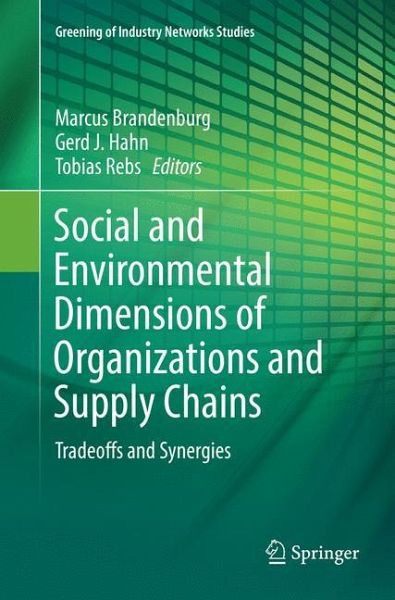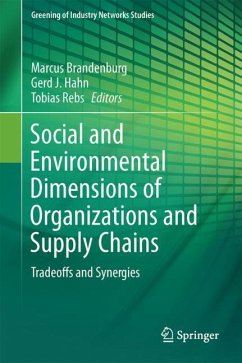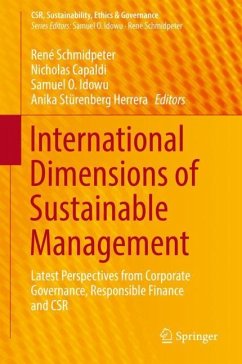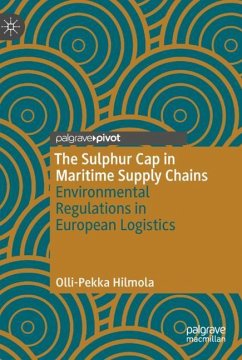
Social and Environmental Dimensions of Organizations and Supply Chains
Tradeoffs and Synergies
Herausgegeben: Brandenburg, Marcus; Hahn, Gerd J.; Rebs, Tobias
Versandkostenfrei!
Versandfertig in 6-10 Tagen
76,99 €
inkl. MwSt.

PAYBACK Punkte
38 °P sammeln!
This book focuses on environmental and social factors in international supply chains and industry networks. It explores whether socially-responsible and environmentally-conscious operations are complementary or conflictive to economic targets. The book elaborates on innovative approaches to manage the economic, ecological and social performance in supply networks from different perspectives. In addition, it links sustainability to operational processes and illustrates specific application contexts. Moreover, it covers the social dimension of sustainability.The rise of sustainability in managem...
This book focuses on environmental and social factors in international supply chains and industry networks. It explores whether socially-responsible and environmentally-conscious operations are complementary or conflictive to economic targets. The book elaborates on innovative approaches to manage the economic, ecological and social performance in supply networks from different perspectives. In addition, it links sustainability to operational processes and illustrates specific application contexts. Moreover, it covers the social dimension of sustainability.
The rise of sustainability in management forces enterprises to revisit the concept of profitability that drives their operations. Social standards and ecological targets represent critical factors that challenge industry networks. The interplay of these goals requires new insights from scientific research and managerial practice. New approaches and systems are needed to minimize environmental and social harms and topromote sustainability.
The rise of sustainability in management forces enterprises to revisit the concept of profitability that drives their operations. Social standards and ecological targets represent critical factors that challenge industry networks. The interplay of these goals requires new insights from scientific research and managerial practice. New approaches and systems are needed to minimize environmental and social harms and topromote sustainability.












